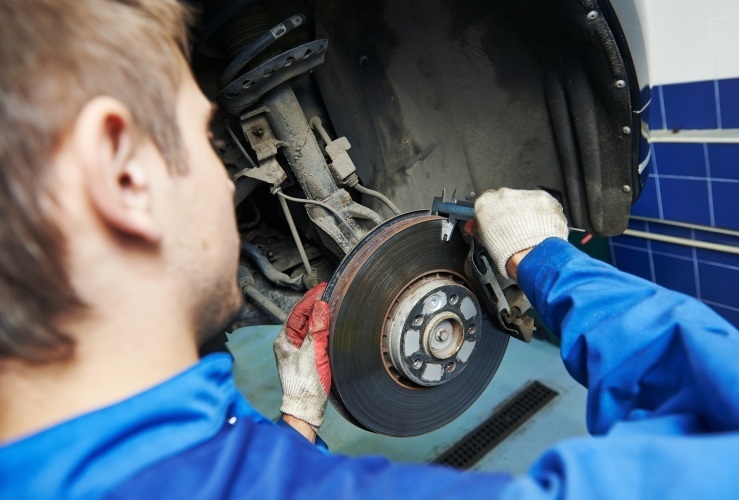It is advisable to have your brakes checked by a professional before winter begins, in order to give yourself optimum braking power over wet, muddy or icy road surfaces. But even if your brakes were working well before the colder months, you may still find they have been damaged by the time spring arrives.
Since brakes are much more exposed to the elements than other parts of your car, they are more susceptible to damage and wear. Brakes can be more easily damaged during winter because they come into contact with fluids and dirt particles much more frequently.

Many of our breakdown cover customers are affected by brake problems during and after winter. Brakes can fail or malfunction for a number reasons, reducing your ability to come to a halt and, in the case of complete failure, may mean you have to call out your breakdown recovery service. If you believe your brakes may be malfunctioning due to any of the following issues, it is important to either address the problem yourself (only if you have the knowledge and experience), or take your car to a garage.
Are you brakes screeching when you apply them? This may well be a sign that your brake pads are worn and should be replaced. If you have the know-how and experience, you can replace them yourself. Otherwise, take your car to a qualified mechanic.
Brake fluid contamination can also adversely affect how responsive your brakes are. Dirt or grit in your brake fluid can reduce the fluid's ability to withstand high pressure. If you change your brake fluid yourself, ensure no particles enter the reservoir - and be sure to tighten the cap properly. It is especially important not to let water enter your brake fluid, as it can freeze in the brake lines and expand, potentially rupturing them.
Your brakes may also not work properly if your brake fluid is running low. This could be the case if you can press the brake pedal to the floor with little response from the brakes. While this is a potentially dangerous issue, it can be remedied easily – by opening the brake fluid master cylinder and topping up the fluid. Be sure the fluid is not contaminated by other particles when you do this.
Since brake systems are made of metal, they are highly susceptible to rust, especially if water lies on them for prolonged periods. Rust particles could result in damaged or jammed brakes. If your brakes are pulling the vehicle to one side, they could have been damaged by corrosion. If you feel confident doing so, remove the wheel to see if your brakes are indeed damaged. If they are, you can either change them yourself or take them to a garage for replacement.
Driving through mud regularly can result in mud adhering to the brake calliper. Because this reduces the distance between the calliper and the brake pad, it could reduce your ability to brake effectively. This issue can make your vehicle feel like it is braking constantly, limiting your control over speed. This problem can also reduce the lifespan of your brake pads through overheating and overuse. After driving through a muddy area test your brakes immediately; this may dislodge any mud sticking to your brakes.
If particles in the brake fluid obstruct your brake lines, your brakes may not work properly. Once again, be sure no foreign particles enter your brake line system when topping up brake fluid. Tighten the master cylinder reservoir cap tightly.
Brake boosters work by creating a vacuum within the braking system, allowing you to apply a lot of pressure, with little effort. A defective brake booster will result in less braking power. Your mechanic will be able to identify and fix this problem.




